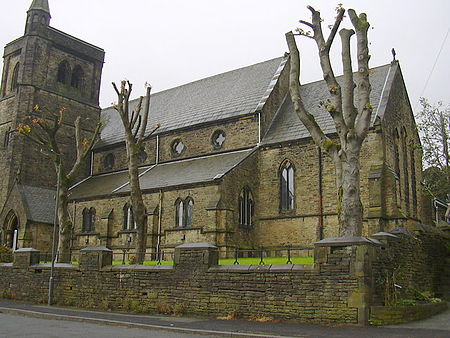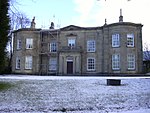Christ Church, Bacup
1854 establishments in England19th-century Church of England church buildingsAnglican Diocese of ManchesterBuildings and structures in the Borough of RossendaleChurch of England church buildings in Lancashire ... and 6 more
Churches completed in 1854Gothic Revival architecture in LancashireGothic Revival church buildings in EnglandGrade II listed churches in LancashireSharpe and Paley buildingsUse British English from September 2013

Christ Church is in Beech Street, off Todmorden Road, Bacup, Lancashire, England. It is a former Anglican parish church in the deanery of Rossendale, the archdeaconry of Bolton and the diocese of Manchester. The church is recorded in the National Heritage List for England as a designated Grade II listed building.
Excerpt from the Wikipedia article Christ Church, Bacup (License: CC BY-SA 3.0, Authors, Images).Christ Church, Bacup
Beech Street, Borough of Rossendale Greave
Geographical coordinates (GPS) Address Nearby Places Show on map
Geographical coordinates (GPS)
| Latitude | Longitude |
|---|---|
| N 53.7068 ° | E -2.1935 ° |
Address
Beech Street
OL13 9DR Borough of Rossendale, Greave
England, United Kingdom
Open on Google Maps









